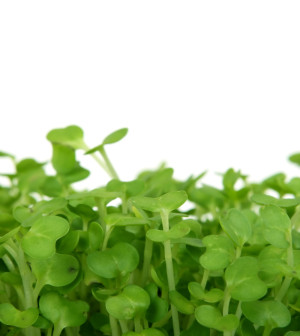- 8 Ways to Increase Dopamine Naturally
- 7 Best Breads for Maintaining Stable Blood Sugar
- Gelatin vs. Collagen: Which is Best for Skin, Nails, and Joints?
- The Long-Term Effects of Daily Turmeric Supplements on Liver Health
- Could Your Grocery Store Meat Be Causing Recurring UTIs?
- Are You Making This Expensive Thermostat Error This Winter?
- Recognizing the Signs of Hypothyroidism
- 10 Strategies to Overcome Insomnia
- Could Artificial Sweeteners Be Aging the Brain Faster?
- Techniques for Soothing Your Nervous System
Dietary Supplements Can’t Treat or Cure Concussions: FDA


Concussions can’t be prevented, treated or cured with dietary supplements, according to the U.S. Food and Drug Administration.
The agency issued a warning against these products in response to a number of false claims, including promises to promote faster healing times after a concussion or other traumatic brain injury (TBI).
No scientific evidence exists to support this claim or others, according to a recent FDA news release. The agency advised consumers to avoid these products, which are marketed on social media sites such as Twitter and Facebook and sold online and in various retail stores.
“As amazing as the marketing claims are, the science doesn’t support the use of any dietary supplements for the prevention of concussions or the reduction of post-concussion symptoms that would enable one to return to playing a sport faster,” Daniel Fabricant, director of the FDA’s division of dietary supplement programs, said in the news release.
The FDA pointed out that dietary supplements marketed as cures or treatments for concussions or other traumatic brain injuries are not only untested, but also possibly dangerous.
These supplements typically contain the Indian spice turmeric and high doses of omega-3 fatty acids. The FDA recommends taking no more than 3 grams of omega-3s daily due to increased risk of bleeding, high cholesterol and problems controlling blood sugar levels.
Even if the ingredients in the products aren’t harmful, the agency is concerned that those who believe the claims might not take the proper precautions to prevent a concussion or heal properly after such an injury.
A concussion is a type of serious brain injury that can occur after a hit to the head or rigorous shaking of the head or upper body. These head injuries must be properly diagnosed and treated by a doctor, experts say.
Although the long-term effects of concussions have been the subject of recent debate, research suggests that people who sustain a concussion and resume playing sports or participating in strenuous activities too soon are at greater risk for another concussion. Experts note that concussions have a cumulative effect on the brain, which can cause brain swelling, permanent brain damage or even death.
“We’re very concerned that false assurances of faster recovery will convince athletes of all ages, coaches and even parents that someone suffering from a concussion is ready to resume activities before they are really ready,” Gary Coody, the FDA’s national health fraud coordinator, said in the news release. “Also, watch for claims that these products can prevent or lessen the severity of concussions or TBI.”
Jason Humbert, a senior regulatory manager with the FDA’s Office of Regulatory Affairs, said the agency was first notified about dietary supplements being sold as cures or treatments for concussions by the U.S. Department of Defense.
“We first learned from the military about a product being marketed to treat TBI — obviously a concern with wounded veterans,” Humbert said. “We were taken aback that anyone would make a claim that a supplement could treat TBI, a hot-button issue. That sparked our surveillance.”
The FDA has so far identified two companies that sell more than one product promising to prevent and treat concussions or other types of traumatic brain injuries.
One company claimed its product has “the dynamic ability to minimize long-term effects and decrease recovery time,” according to the FDA. A National Football League player also vouched for the product’s “proven results” in his own recovery from a concussion. Meanwhile, an unidentified “licensed trainer” reportedly uses the product in his “concussion-management protocol.”
The second company made similar claims for four products it is selling.
The FDA sent letters of warning to both companies in 2012, which stated that the supplements did not have adequate directions for their use and were generally not recognized as safe and effective for treating concussions or other brain injuries. The FDA notified the companies that legal action, such as seizure or injunction, could result if violations were not corrected. Since then, both companies have changed the labeling on their products and updated their websites, according to the news release.
In 2013, the FDA also sent a warning letter to Star Scientific, Inc., in response to claims that its product Anatablo treats traumatic brain injuries. The agency said it continues to screen the marketplace for other supplements with similar bogus claims and will take the necessary action to protect the public.
“As we continue to work on this problem, we can’t guarantee you won’t see a claim about TBIs,” Coody said. “But we can promise you this: There is no dietary supplement that has been shown to prevent or treat them. If someone tells you otherwise, walk away.”
More information
The U.S. Centers for Disease Control and Prevention provides more information on concussions.
Source: HealthDay
Copyright © 2026 HealthDay. All rights reserved.










